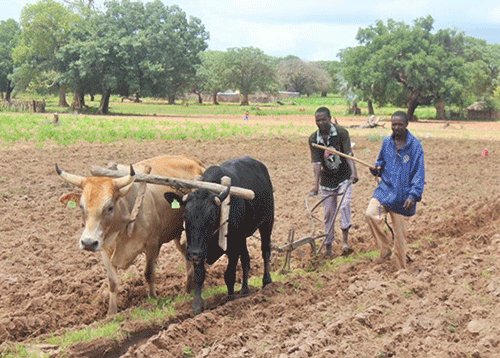Founder of Ombu Capital Vetumbuavi Mungunda yesterday said the lack of rural economic activities would lead to even more urban migration that will bring about more challenges in urban areas.
“If rural economic activities remain as low as it is, Namibia will experience urban migration, which will lead to many socio-economic challenges.
“There is a need to go and stimulate rural economies so that people don’t have to move,” Mungunda said at an economic discussion organised by Ombu Capital and focused on the rural economy.
Namibia’s rapid urbanisation has resulted in the mushrooming of informal settlements, which in turn puts pressure on infrastructure and the provision of basic services in urban areas.
In 2020, 52% of Namibia’s total population lived in urban areas and cities. The Namibia Statistics
Agency says the provision of land and basic services, inadequate housing, a lack of land tenure security resulting in the mushrooming of informal settlements, inadequate basic urban infrastructure as well as a lack of capacity, are some of the challenges brought about by urbanisation.
Mungunda, the former Standard Bank chief executive officer (CEO), added that key inputs in sectors which occur in the rural economy are water and electricity.
But water and electricity tariffs in Namibia remain high, which hinders investments. Setting up businesses in rural areas are thus more expensive than in urban areas, which remains a challenge.
“We need to push for value-addition in these areas. Agriculture sustains about 60% to 70% of livelihoods.
“Agriculture is one of Namibia’s most important sectors, with the majority of Namibia’s population dependent directly or indirectly on the agricultural sector for their livelihoods,” he added.
Sectors which are involved in the rural economy’s contribution to the gross domestic product (GDP) has never exceeded 8%, which makes it far from being matured, Mungunda observed.
Ombu Capital is a newly-established Namibian business services’ company, focusing on the acquisition, development and growth of businesses in the technology, agri-business, tourism and manufacturing sectors.
At the same occasion, finance minister Iipumbu Shiimi said there is a need to commercialise activities in the rural economy, given its significance to the entire economy.
“The rural economy supports a significant number of the
population. It contributes to employment, but unfortunately the sector is not that productive and is unable to depend on its own.
“Much of the income comes from subsistence farming. Productivity in the rural economy is very low,” added Shiimi.


